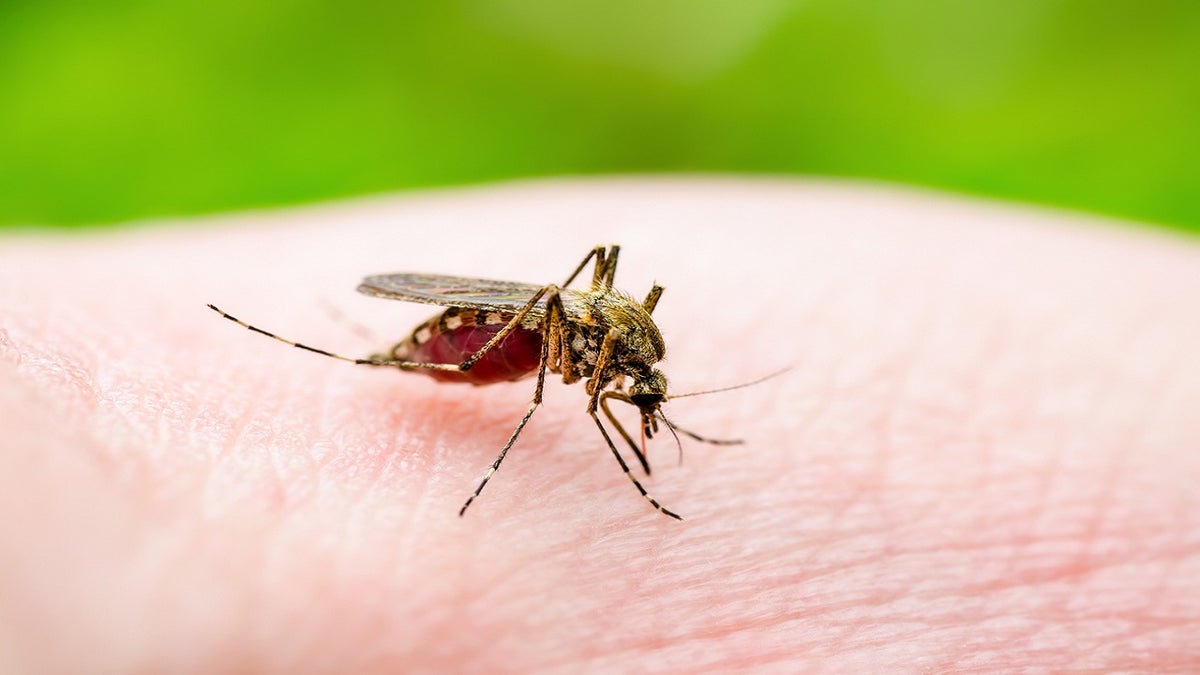Fox News Flash top headlines for September 6
Fox News Flash top headlines are here. Check out what's clicking on Foxnews.com.
Another town in Vermont has been designated "high risk" for eastern equine encephalitis virus (EEEV).
Sudbury, a tiny town of only a few hundred residents in Rutland County, Vermont, was added to the state's warning list on Wednesday — joining Burlington, Alburgh, Colchester and Swanton, according to local outlet WCAX3.
Health officials have asked state residents to take precautions to avoid exposure to EEEV, which has popped up in various locations across New England. Cases have also been reported in Wisconsin.
WHAT IS EEE, THE MOSQUITO-BORNE DISEASE THAT KILLED A NEW HAMPSHIRE MAN?

Health officials in various New England states are cautioning residents over the potentially deadly mosquito-borne eastern equine encephalitis (EEE) virus after detecting virus-positive mosquitoes. (iStock)
EEEV is a rare but serious disease transmitted to people by infected mosquitoes. Health officials in multiple states have asked residents to take precautions to avoid exposure.
"Obviously, this disease is dangerous, but it’s not widespread at this point. We should acknowledge that it’s there and take precautions," Vermont Gov. Phil Scott previously said of the virus.
Last week, a man from Hampstead, New Hampshire, died after testing positive for Eastern equine encephalitis (EEE).
The man "was hospitalized due to severe central nervous system disease, and has passed away due to [the] illness," according to a statement from the New Hampshire Department of Health and Human Services (DHHS).
In late August, four Massachusetts towns — Douglas, Oxford, Sutton and Webster — set a voluntary evening lockdown in an attempt to curb the spread of the virus.
That decision came after the Massachusetts Department of Public Health (DPH) confirmed the first human case of Eastern equine encephalitis (EEE) since 2020 in Worcester County, affecting an elderly man in Oxford.
Eastern equine encephalitis is casued by a virus that is spread through the bite of an infected mosquito, according to the CDC, which describes EEE as a "rare but serious disease."
Only a few cases are reported in the U.S. each year, most in the Eastern or Gulf Coast states.
CLICK HERE TO GET THE FOX NEWS APP

The CDC recommends using insect repellents, wearing long-sleeved shirts and pants and treating clothing and gear with permethrin, which is an insecticide that kills or repels mosquitoes. (iStock)
While EEE was previously "very uncommon" in the U.S., there is the potential for these types of viruses to become more prevalent across the country, according to Dr. Edward Liu, chief of infectious diseases at Hackensack Meridian Jersey Shore University Medical Center.
"As warm seasons get longer, mosquitoes have more time to breed," Liu told Fox News Digital. "If heavy rains cause standing pools of water, that will create an environment for larger mosquito populations."
Common symptoms of EEE include fever, vomiting, diarrhea, headache, stiff neck, seizures, behavioral changes and drowsiness, per the CDC. These usually appear five to 10 days after being bitten. The disease can be deadly, resulting in fatalities for 30% of infected people.
Fox News Digital's Melissa Rudy contributed to this report.










































